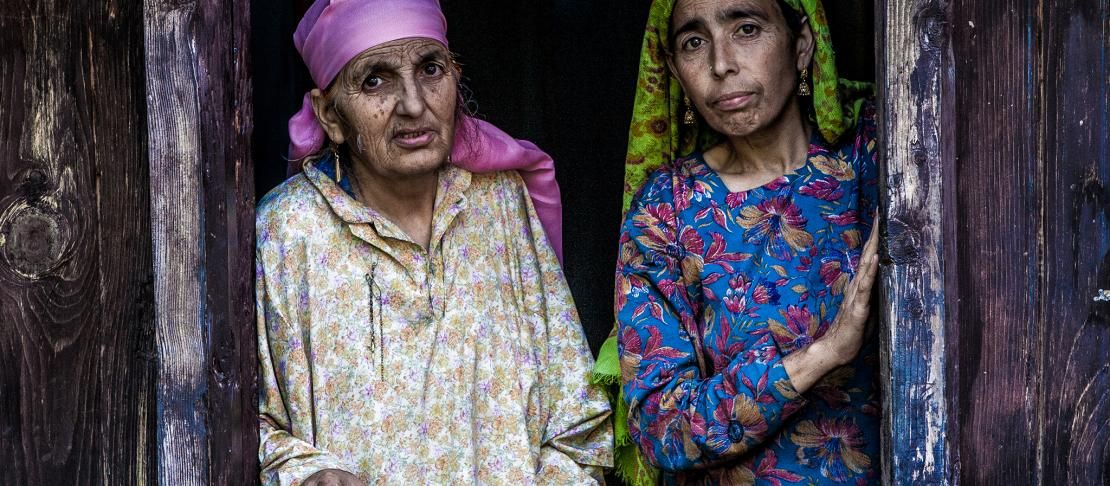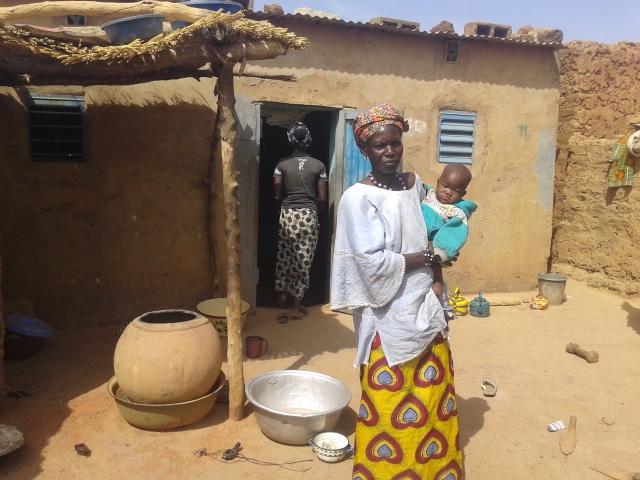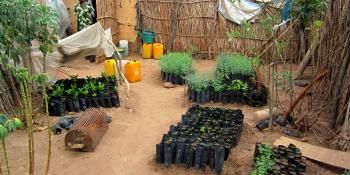Agriculture and climate research meet the high-tech world in online Data Kit

A multifunctional Open Data Kit helps researchers collect reliable GPS coordinates for a household survey, and more.
Aggregating data faster and getting the numbers cleaned up in an instant are perhaps what most researchers dream about. If that is the case for you, then we would like to introduce you to the online Open Data Kit, aimed to make research-life slightly easier.
The Open Data Kit is a set of tools for data collection that aims to simplify decision-making for organisations and research programs working in developing regions. There are a number of features that you can use if you are carrying out a development project or studies:
- You can collect digital data – collected via forms and stored on mobile devices such as android phones;
- You can store your data, either on a cloud-based server or on a private one. The data on the server can then be exported to a variety of other tools such as Google Earth or Google Maps;
- The kit also includes a form-authoring tool as well. Here the idea is that you can take traditional forms and turn them into a digital format. Completed forms are then sent back to the server, where the data is aggregated and made ready for analysis;
- You can gather and store multimedia such as videos, audio, photos, barcodes and more, basically anything that you can link to an android phone.
The Kit's core developers are researchers at the University of Washington's Department of Computer Science and Engineering department and active members of Change, a multi-disciplinary group at University of Washington exploring how technology can improve the lives of under-served populations around the world.
Making data available - faster
The aim for this digitalisation of data and information is, among many things, to help speed-up the data collection and cleaning-phase. As an next step, the data and accompanying analyses can help support decision-making processes on development issues.
The Open Data Kit goal is also to make open-source and standards-based tools which are easy to try, easy to use, easy to modify and easy to scale.
Watch an introduction video to the Open Data Kit:
How did we use the Open Data Kit?
We used the Open Data Kit to re-collect GPS coordinates for selected baseline survey households. The household surveys are part of our ongoing work where we intend to re-visit the same sites in 5-10 years to assess what changes farmers have made and whether these changes are helping households adapt to, and mitigate, climate change.
Much of the original GPS data for this survey was found to be unreliable for various reasons, so a re-collection process was needed.
“Smart-phones generally have excellent GPS, so we collected the coordinates, took photos of each household and recorded enumerator comments if they could not find the household. All of this was done digitally, on smart-phones, and the forms uploaded to our server as soon as the enumerators had a good connection,” says Dave Mills who managed the data re-collection for our baseline surveys. “I was actually able to monitor the data uploads in near-real time from my office at Reading University in England!”

When collecting GPS coordinates for the baseline survey study, project team took photos of each family and household.
What are the benefits from working with online data tools?
“This has so many benefits over using paper forms. All the validation checks we would have done at the ‘data entry’ phase are now conducted at the point of collection. We can even do some extra consistency checks back in the office while the enumerators are still in the field,” Dave continues.
"This really helped us to run the entire project more efficiently. In the first site, I noticed that two forms had been submitted for the same household – with different GPS coordinates. After a quick skype conversation, the enumerator returned to the village the next day to redo that household."
"With paper forms, we would have spotted the error weeks or months later – far too late to resolve it. These types of issue are inevitable in a project of this scale. By using the Open Data Kit, we were able to resolve many of them during data collection. This will make analysing and archiving the data much easier,” says Dave.
What were some of the challenges with the Open Data Kit?
“The main challenge we had was choosing the best way of using the tools available. Suddenly, digital data collection is a massive industry and with so many options appearing it is difficult to know which ones to choose. Even just using the Open Data Kit, there are lots of ways to build a form that will do the job, and we’re still very new to the game. The next few years are going to be very exciting for us as we explore these new methods of collecting data,” says Dave.
The Open Data Kit has actually been around for a couple of years, but it’s now gaining a lot of attention and people are using it for their own research projects, as smart phones get cheap enough and they get more comfortable using them. For us, it’s new and exciting because it allows us to get more accurate and more reliable data in a format that is easy to use.
The Open Data Kit website has some good examples of current and past use of ODK in various projects. The Kit is used by PeaceWorks, Kiva, Columbia University and Millennium Villages project just to mention a few organisations and partners.
Feel free to try it out: The Open Data Kit is a free and open-source set of tools.
Learn more about our Baseline Survey studies
We just published a set of Baseline Reports from our activities in South Asia:
- Madhuri - Rupandehi, Nepal
- Mukundpur - Vaishali Bihar, India
- Pakhana, Karnal - Harayana State, India
- Khulna - Bagerhat, Bangladesh
This blog was prepared by Cecilia Schubert, Communications Specialist and Dave Mills, who managed the data re-collection for our baseline surveys, based with the University of Reading.



